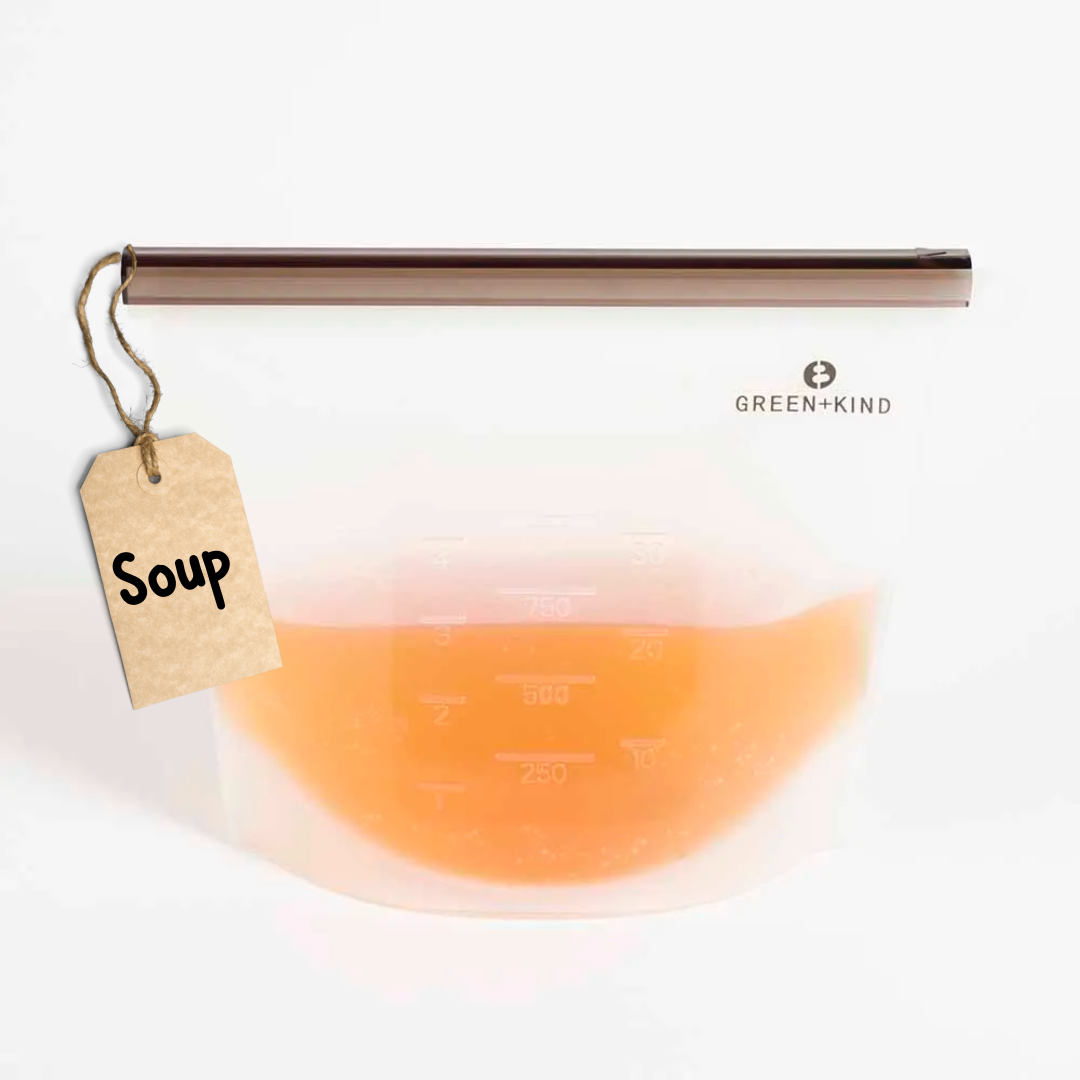It's Sustainable September at F&F! We've put together our top tips to help you live a more sustainable life because what we do in our individual lives has a huge impact on our planet!
You may have already ticked some of these off your list, but maybe there are a few more ideas here for you. It's all about implementing these into your daily routine to make good habits. Some people say it takes 21 days to form a habit and 90 days to make it a permanent lifestyle change. So maybe September is the time!
Like exercising and diet, habits are easier to make when you have someone else to do them with, so find your sustainability buddy and write down 10 goals you want to commit to for the month of September. If you live with your family, even better. Establishing good habits at a younger age will set you up to live your life around these values.
Something we only started doing a few years ago was composting and recycling our soft plastics. Now we look back and say "Why didn't we do this sooner?"


Image: F&F
1. Eat Me First Box
What's an 'Eat Me First' box? Well, it sort of speaks for itself. You know all those things in your crisper that you bought with good intentions to make a healthy salad or smoothie bowl? Don't forget about them and let them go bad! If you see they're starting to wilt, pop them in your 'Eat Me First' box.
Take any medium-size box that can fit in your fridge and write in big bold letters EAT ME FIRST. Put all your fruit, veggies, mylk and anything nearing the end of it's fridge life in there and make a commitment to eating them before they go bad. This will encourage you to do a weekly check of your fridge and read any expiration dates that might be coming up.
Veggies a little too sad to eat? Make a vegetable stock! Bananas a bit too brown? Make banana bread or pancakes. Don't let that food go to waste!


Image: Canva
2. Buy Local Aussie-Made/Grown
Why is it important to shop and support local businesses? Buying local helps to reduce carbon emissions from food travelling all over the world. A great way to support the local economy too!
We are so lucky that we can grow delicious fruit and veggies here in Australia all year round. And if you've got the space, why not plant your own veggie patch and grow your food in your own backyard? Or try our Microgreens Windowsill Grow Kits.
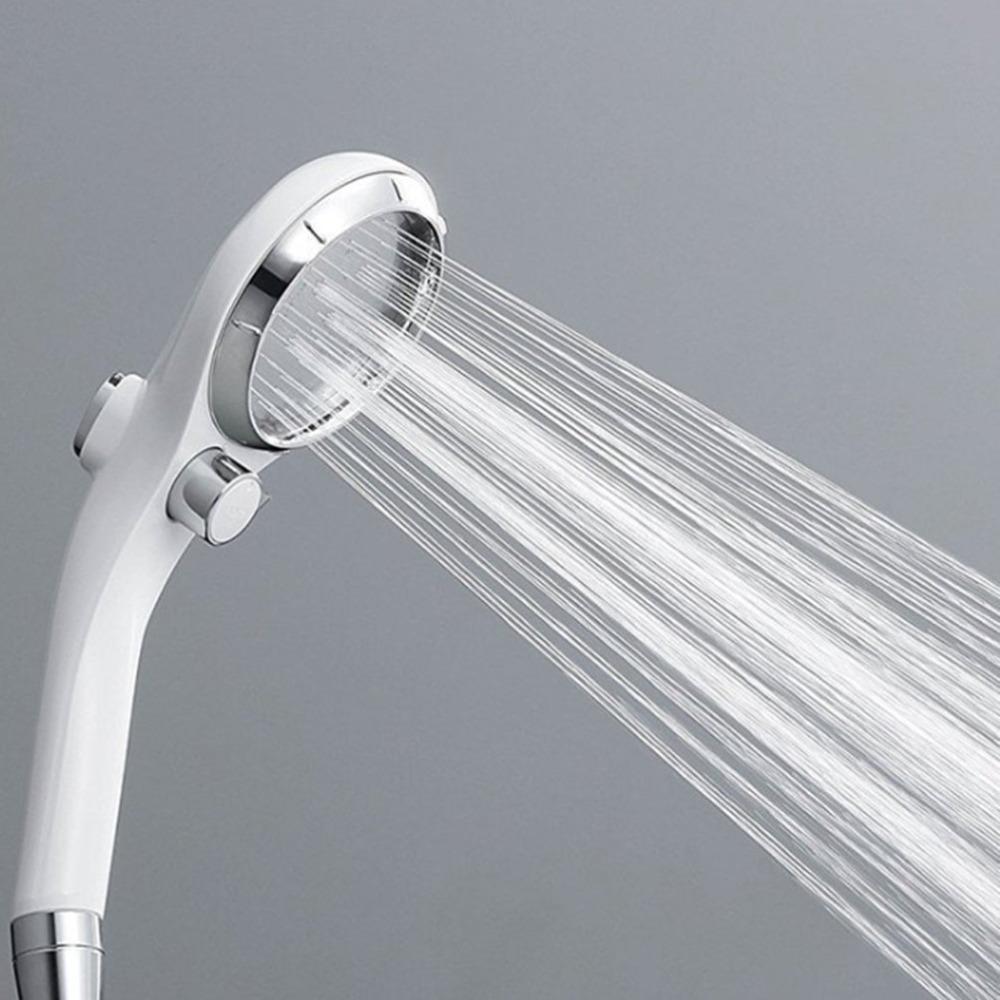

Image: Canva
3. Install a Water-Saving Showerhead
Installing a water-saving showerhead is a super simple and easy way to cut down on your water consumption. Australia experiences long droughts and it's important we conserve our water and be conscious when washing our dishes, brushing our teeth and especially taking showers!
Try this experiment: hold a bucket under your showerhead and time how long it takes to fill up. If your 10-litre bucket is full in under 20 seconds, it might be time for a new shower head.
We know how lovely long, hot showers are, especially in winter, but try and keep your showers to a maximum of 4 minutes. You can even set a timer on your phone or get a fancy sand timer to let you know when you should get out of the shower.
4. Freeze Leftovers and Label Meals
So much produce and tasty meals go to waste because we want something different to eat the next day but if we freeze it we can come back to it at a later time.
Usually when we make a big batch of veggie bolognese sauce, we'll have some for dinner and then freeze the rest in containers. You can apply this same method to all the meals you make. An extra tip is to stick a bit of tape on the container and write the date!
There are lots of things you might not know that you can freeze like vegetables, garlic, nuts, chocolate, cake frosting, avocado, fruits, bread and much more! Our Green + Kind Reusable Silicone Bags are freezer safe and great for storing your leftovers.
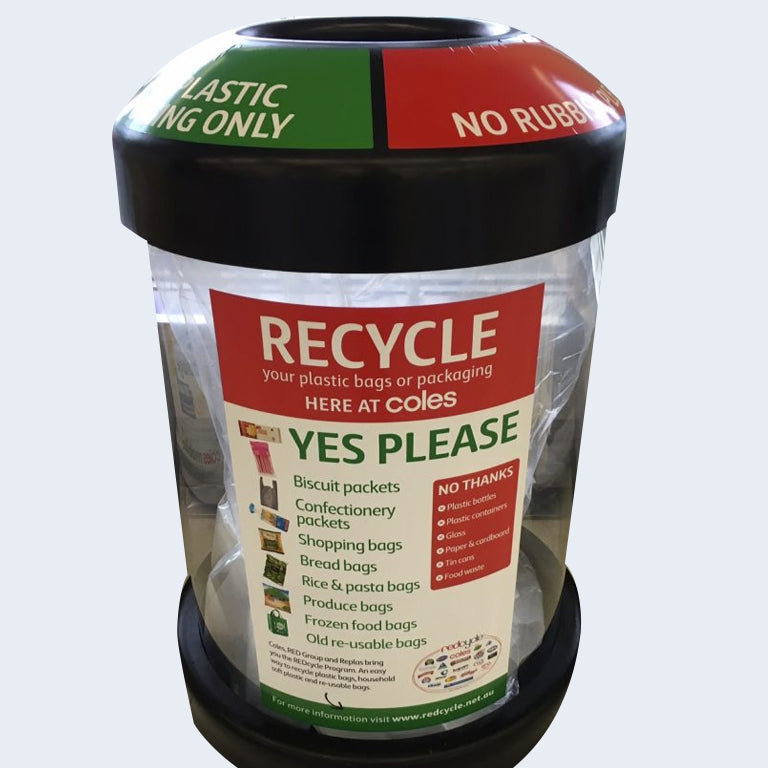

Image: Redcycle
5. RedCycle Your Soft Plastics
Yes, we try and live as minimally and plastic-free as possible, however, some things we buy, still come in plastic.
Hard plastics can be recycled kerbside, but where do soft plastics go? RedCycle to the rescue! Maybe you're a fan of some of our Vegan Lollies that come in little plastic packaging? Don't throw this in the bin, this can be recycled through RedCycle!
We have a bag next to our rubbish bin that we fill up over the month with our soft plastics. Between this and composting, there's not much that goes in our rubbish bin these days. It's become a routine that when we're cooking, we separate any soft plastics and recycling and any empty jars get washed out and reused! Once your bag is full, drop it off at your nearest RedCycle bin to be recycled (near Coles or Woolies).
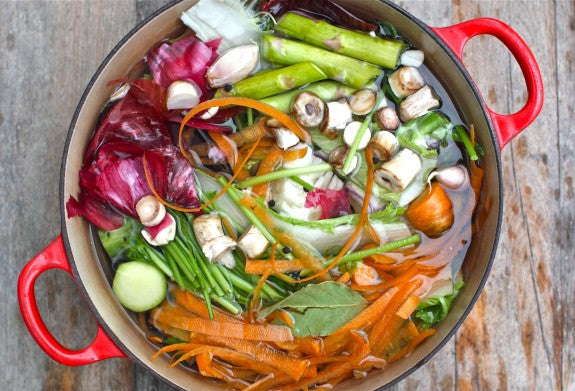

Image: Canva
6. Make Veggie Stock
If you've got the time, making homemade vegetable stock is delicious and means you don't have to buy it in a container or in little cubes that come in plastic. Yes, you can totally compost all your veggie scraps and that's what it's for, but onion skins, carrot & potato peels, celery stems and lots of other scraps you would otherwise compost can make a delicious and nutritious vegetable stock!
Not ready to make one right now? No sweat, collect veggie scraps in a container and freeze them. Keep adding to it until you've got some time to simmer those veggies into a beautiful stock. Remember, stock isn't just for soup, you can add it to curries, risotto, pasta sauces and more.
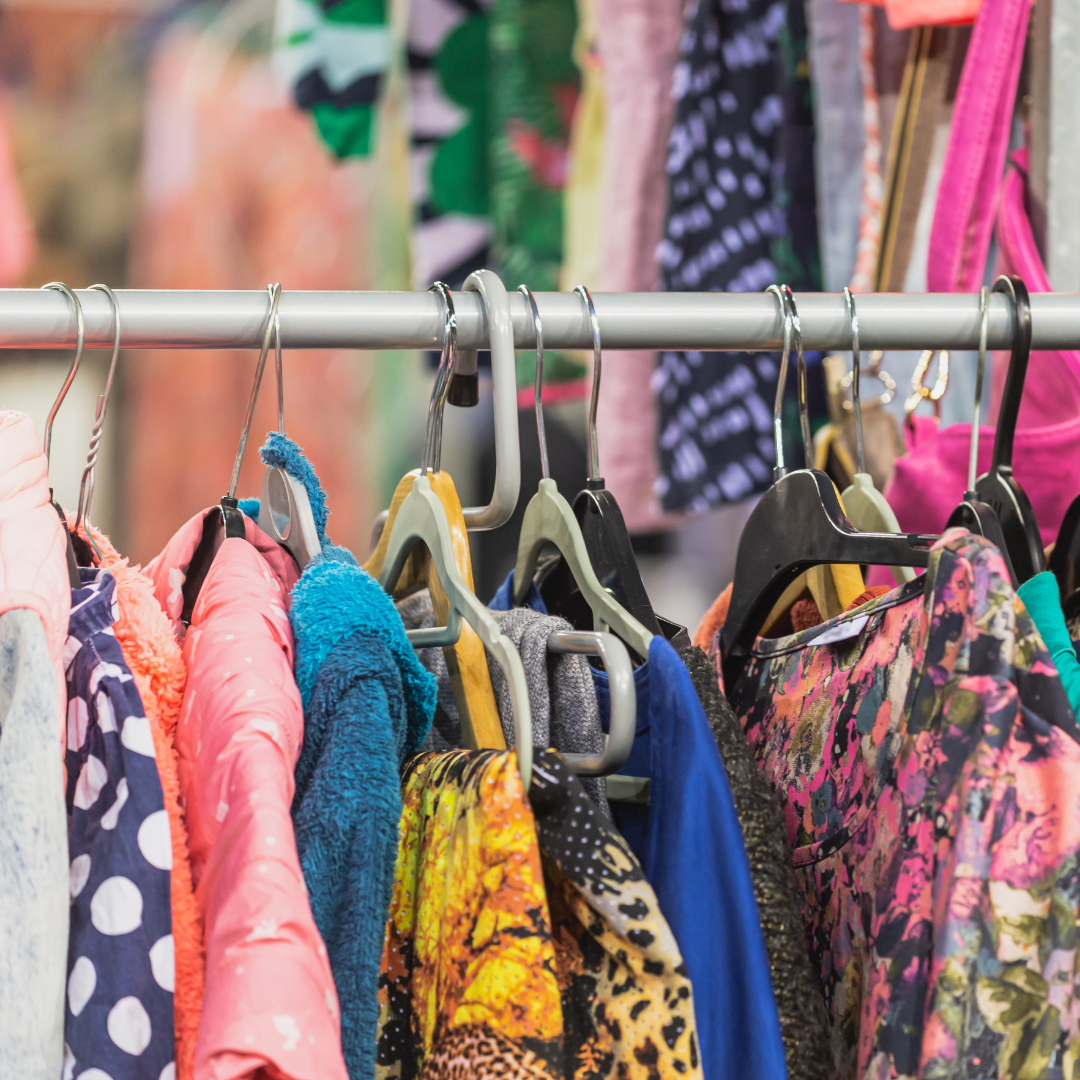

Image: Canva
7. Buy Second Hand
We know a lot of you are very conscious consumers, so this is a no brainer! Your first thought might be clothes, especially because this month is also 'Second-hand September', but there are so many other goodies you can get secondhand like crockery, furniture, books, games, art, etc!
We often get a lot of comments that some of our products like our safety razors, used to be the more popular option and now they're coming back into fashion, so you just never know what cool, old thing you'll find at your local op shop.
Op shops and second-hand stores are great to find your treasures, but, we've also found some wonderful, lightly used things on Facebook Market place, Gumtree and Depop. Another cool app we discovered is Olio Ex which connects you with your neighbours to share food and other things for free.


Image: Canva
8. Bulk Food Shop
Some might say I'm a hoarder for all different sizes of jars I collect and the crazy amount of space they take up in our pantry... but someday I will make jam and I won't have to buy any glass jars!
Jars are great to have if you're trying to live a more zero-waste lifestyle and shop at bulk food stores like The Source. We do our weekly shop here and refill our jars with flour, nuts, lentils and lots of baking supplies. And guess what? No plastic!


Image: Canva
9. Cook at Home
The best way to avoid plastic is to take your own Reusable Cutlery, Straws and Coffee Cups when out and about. You can even bring along your own Food Storage Containers to avoid accepting plastic takeaway ones.
During the pandemic, we weren't able to bring our own reusables. Due to this, we found a new love for cooking at home and making coffee every morning. We take turns making dinner every night and making coffee every morning and again, after 21 days, it's become a habit.
If your cooking skills aren't up to scratch, there's no better time to practice. And if you don't have many recipes up your sleeve, treat yourself to a new Cookbook, or better yet, find one secondhand!
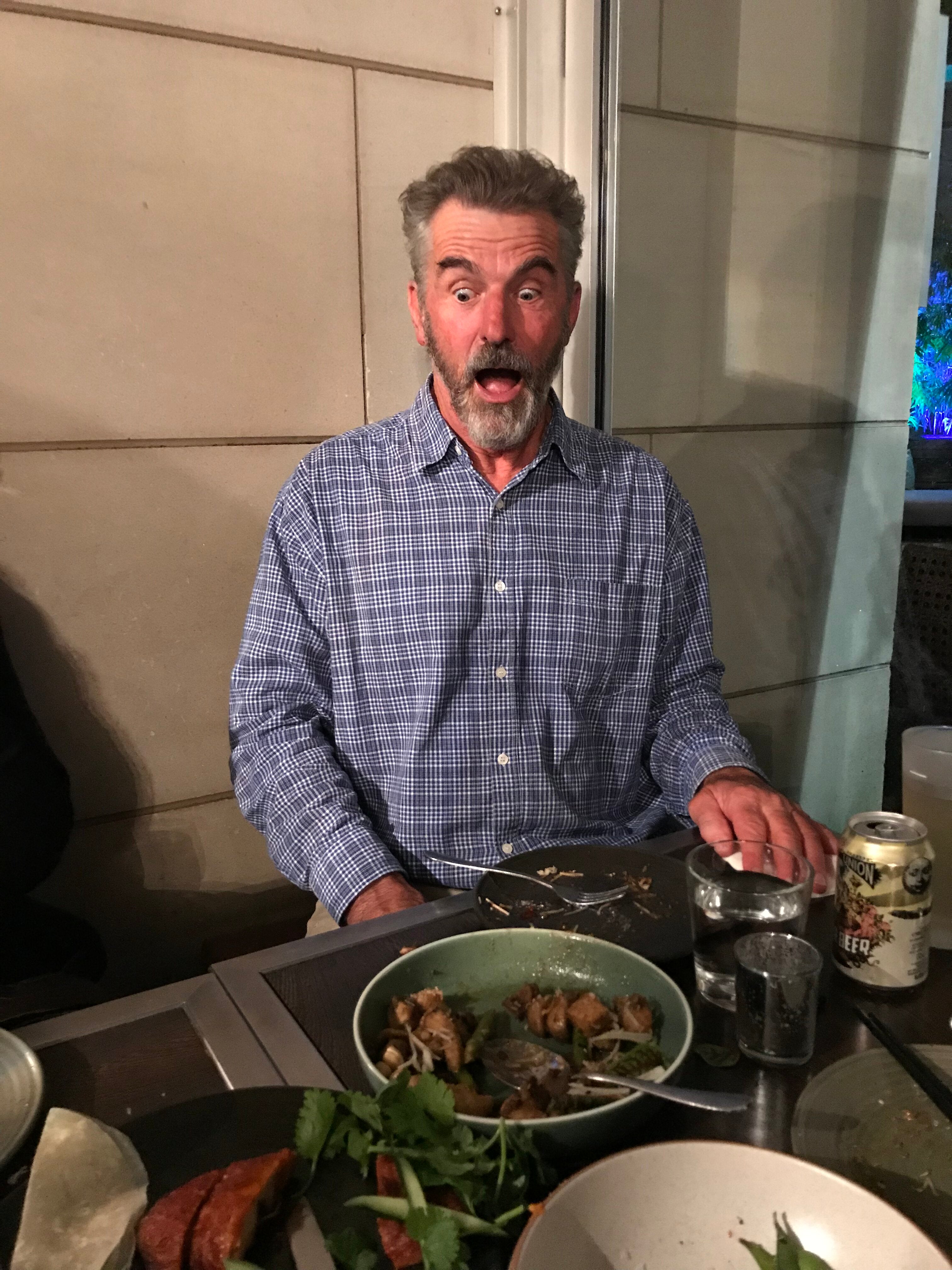

Image: Canva
10. Go Vegan
Eating fruit, veggies, legumes and other plant-based food takes up far less water and land than a diet containing animal products. Farming makes up a big chunk of the world's greenhouse gas emissions, causes water pollution, and deforestation which causes many species to go extinct.
You can live a perfectly healthy life on a plant-based diet and we've got lots of other blogs with yummy recipes and Tips On Going Vegan!
A good mantra to have when thinking about making a purchase is "Do I need it? Can I buy it secondhand? Is it ethically made?"
We hope these 10 tips help you to be the best version of you! We'd love to hear what you're challenging yourself to do this Sustainable September. So leave a comment and let us know.
For more helpful tips, make sure to check out the following blogs below:
3 Things You Can Do This Sustainable September

